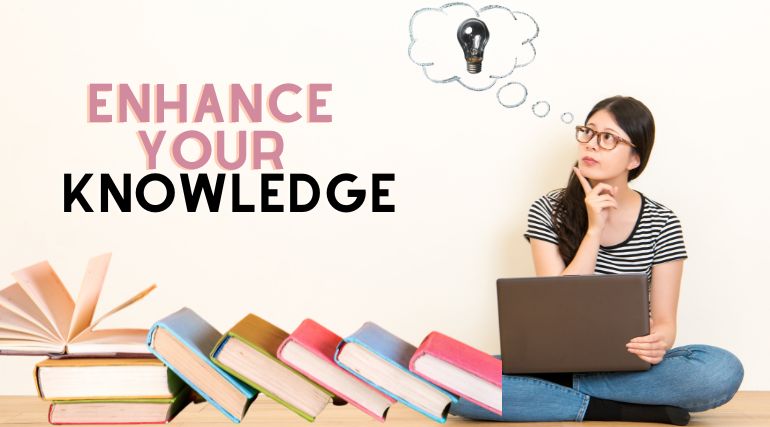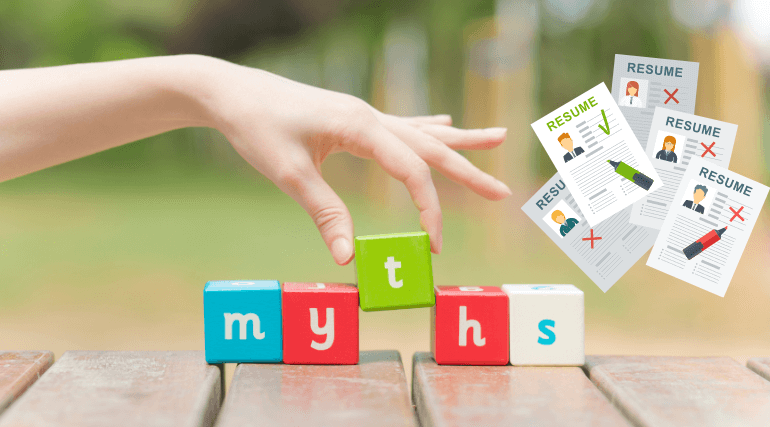6 Must-Read Books for Sharpening Your Critical Thinking Skills
Are you prepared to unleash your potential? So let's begin with books! There are various books available that can aid in this goal. Reading is an excellent approach to developing your cognitive abilities. There is a book out there that can assist you in achieving your objectives, whether you want to sharpen your creativity, critical thinking, or problem-solving skills. In this blog post, we'll present you with six must-read books that will help you unleash your creativity and sharpen your analytical faculties. From old favorites to more recent works, these books are jam-packed with knowledge, tactics, and advice that can improve your ability to think critically and solve problems. Prepare to delve in and unleash your creativity with these six must-read books.
The Power of Reading: How Reading Enhances Your Thinking Skills
One of the most effective tools we have for improving our ability to think is reading. It enables us to discover new worlds, deepen our comprehension of various viewpoints, and examine our own views and presumptions. We may develop our capacity for critical thought, complicated concept analysis, and original problem-solving by reading frequently. But it's equally important to consider how we read in addition to what we read. Actively reading material, making notes, and asking questions can all aid in our ability to remember and put the knowledge we acquire to use. There has also never been a better moment to start using reading to unleash your inner genius because there are so many amazing books available, ranging from classic literature to cutting-edge science.
Whether you're looking to improve your leadership skills, deepen your understanding of human behavior, or simply expand your horizons, there's a book out there that can help you achieve your goals. So why not pick up a book today and see how reading can transform your thinking?
Book 1: Nudge: Improving Decisions About Health, Wealth, and Happiness
Author: Richard H. Thaler, Cass R Sunstein
We make decisions every day about our purchases, our meals, our investments, our children's health and education, and even the causes we support and the future of the world. Sadly, we tend to make bad decisions.
We are all prone to prejudices that can cause us to make poor choices that harm our financial situation, physical health, and overall happiness. And as Thaler and Sunstein demonstrate, we are never given a choice in an impartial manner. By understanding how individuals think, we can help them make decisions that are best for themselves, their families, and society as a whole. The writers show how to guide us without interfering with our freedom of choice by using dozens of eye-opening instances. Both people and governments may benefit from Nudge's novel perspective on the world.
You won't find a more interesting, thought-provoking, or significant book than this one.
Book 2: Predictably Irrational: The Hidden Forces That Shape Our Decisions
Author: Dan Ariely
In this masterpiece, MIT behavioral economist Dan Ariely challenges the widely held belief that human behavior is inherently logical in a series of insightful and frequently surprising studies. Ariely illustrates how expectations, emotions, social norms, and other unseen, apparently irrational variables warp our ability to reason by fusing real-world experience with ground-breaking research.
Ariely finds that humans not only commit startlingly trivial errors every day but also the same "types" of errors. We frequently overspend, underestimate, and delay. We underestimate the powerful influences that our emotions have on what we want and place an excessive value on what we already have. However, these mistaken actions are not mindless nor arbitrary. We are "predictably" irrational as a result of their systematic and predictable nature.
Ariely discusses how to get over these ingrained cognitive patterns in order to make better judgments about anything from drinking coffee to reducing weight, purchasing a car to finding a love companion. One tiny choice at a time, "Predictably Irrational" will alter the way we interact with the outside world.
Book 3: The Paradox of Choice: Why More Is Less
Author: Barry Schwartz
Everyday decisions—both massive and tiny—have grown more complicated as a result of the overwhelmingly large amount of choice that is available to us. Examples include purchasing a pair of jeans, placing an order for coffee, choosing a long-distance provider, applying to college, selecting a doctor, and setting up a 401(k).In America, we erroneously believe that greater choice equates to better alternatives and higher levels of pleasure. But beware of having too many options; this may lead to second-guessing your choices before you ever make them, setting you up for unreasonably high expectations, and making you blame yourself for any failures. This may eventually result in worry, tension, and a lack of ability to make decisions.
Additionally, having too many alternatives can cause severe depression in a society that promotes the idea that there is no justification for anything less than perfection when one's possibilities are seemingly endless. Barry Schwartz demonstrates in The Paradox of Choice that choice—the cornerstone of the human independence and autonomy which we so cherish—becomes harmful to our mental and emotional health. Schwartz demonstrates how the remarkable growth in choice—from the every day to the deep difficulties of juggling a job, family, and personal needs—has ironically turned into a problem rather than a solution.
Schwartz demonstrates how choosing something that makes us feel worse is encouraged by our fixation with choice. Schwartz presents the counterintuitive argument that limiting options might significantly lessen stress, anxiety, and the bustle of our lives by synthesizing recent social science findings. He provides eleven helpful suggestions on how to reduce the number of options to a manageable amount, develop the discipline to concentrate on the most crucial options while ignoring the rest, and eventually experience better satisfaction from the decisions you must make.
Book 4: The Art of Thinking Clearly
Author: Rolf Dobelli
An eye-opening look into human psychology and reasoning, this book by eminent thinker and businessman Rolf Dobelli must be read by everyone wishing to steer clear of "cognitive errors" and make wiser decisions throughout their life.
Have you ever: Put time into something that, in retrospect, wasn't really worth it? or persisted in engaging in behavior you knew was harmful to you? These are illustrations of cognitive biases, basic mistakes in reasoning that we all commit on a daily basis. But if we are aware of them and how to detect them, we can steer clear of them and choose wisely.
This vital book will revolutionize the way you think and your decision-making at work, at home, and every day. It is straightforward, uncomplicated, and always surprising. It shows the most frequent judgmental errors and how to prevent them in 99 condensed segments.
Book 5: Think Again: The Power of Knowing What You Don’t Know
Author: Adam M. Grant
Rarely do we find a book on rethinking that challenges us to acknowledge the ability to be wrong. In reality, organizational psychologist Adam M. Grant's book Think Again guides readers through the challenge of reconsidering their positions, the idea of argument literacy, and the development of effective unlearning and relearning strategies. In addition, he emphasizes the value of critical thinking abilities that enable us to adapt to a world that is changing quickly and inspire others around us to effect positive change.
Book 6: Thinking in Bets: Making Smarter Decisions When You Don't Have All the Facts
Author: Annie Duke
Even the finest choice does not always result in the best outcome. There is always a chance factor that is out of your control, and there is always knowledge that is obscured. Thinking in bets is therefore the secret to long-term success (and not worrying yourself to death) How certain am I? What are the potential outcomes of the situation? Which choice has the best chance of succeeding? Did I use a 90% effective technique and fall into the unfortunate 10%? Or is my success the result of poor decision-making rather than good luck?
In order to explain strategies that everyone can apply to embrace uncertainty and make better decisions, Annie Duke, a former World Series of Poker winner turned consultant, uses examples from finance, sports, politics as a whole, and (of course) poker. In a society that values and even promotes the appearance of certainty, it might be challenging for most individuals to state, "I'm not sure." Professional poker players, however, are relaxed about the reality that good judgments don't necessarily result in good outcomes, and vice versa.
You may make your decision-making less prone to reactionary emotions, automatic biases, and bad habits by changing your focus from the desire for certainty to the objective of properly analyzing what you know and what you don't. Over time, you'll develop into a more successful person who is calm, confident, and kind.












